Civil and Environmental EngineeringProgram
Graduate School of Engineering

Program Overview
Master
 AWARD
AWARD
Master's Degree in Civil and Environmental Engineering
 DURATION
DURATION
2Y
 SCHOOL(S)
SCHOOL(S)
Graduate School of Engineering
Doctor
 AWARD
AWARD
PhD in Civil and Environmental Engineering
 DURATION
DURATION
3Y
 SCHOOL(S)
SCHOOL(S)
Graduate School of Engineering
Civil and Environmental Engineering Program
Program Introduction
Nagoya University’s Graduate Program in Civil and Environmental Engineering equips students with the knowledge and skills to develop sustainable, high-quality infrastructure around the world. Through a diverse and interdisciplinary curriculum, students explore advanced topics in structural design, environmental systems, geotechnics, hydraulics, and urban planning. Leadership and communication skills are fostered alongside technical expertise, preparing graduates to propose and implement effective solutions to global challenges. Research-oriented internships and thesis projects provide hands-on experience under the guidance of expert faculty, connecting theory with real-world practice. This G30 Civil and Environmental Engineering program in the Graduate School of Engineering has strong collaboration with the one in the Graduate School of Environmental Studies. Many of the course activities are shared between these programs.
Take a look at the List of Available Research Groups below to see the full list of available research topics.
List of Key Research Topics
Computational Mechanics / Seismic Design / Steel Structures / Concrete Material and Structure / Composite Structures and Materials / Structural and Multidisciplinary Optimization / Hydraulics / Transportation Planning / Intelligent Transport Systems / Energy and Environmental Policy and Impact Assessment / Land and Infrastructure Design / Structural-, Bridge-, Maintenance-, River-, Coastal and Ocean-, Geotechnical-, Geo-disaster Prevention-, Environmental-, Microbial Ecological Engineering
How to Apply
The Civil and Environmental Engineering Program conducts its first round of admissions in January. A second, rolling admission period may be offered in May, depending on the availability of seats remaining after the first round. The availability of the rolling admission will be announced in mid-April on the G30 Graduate School Admissions page.
Applicants are advised to contact their prospective research supervisor in advance to confirm whether the research group can accommodate an additional graduate student. If you do not receive a timely reply, we recommend contacting another research group.
Contact information for program professors can be found in the List of Available Research Groups above or by emailing the Graduate School directly. The Graduate School’s contact details are provided at the end of this page.
Please click the “Apply Here” icon above to view the full application instructions.
Tips for a succesful application :
- Contact intended research supervisor in advance.
- Make sure to align research plan to the research field of supervising professor.
- Include examples of past research experience (papers, conference participations etc.)
- Submit your application before the application deadline so AO can check your application for missing documents.
Research Voice
Student from Indonesia
What sparked your interest to pursue research in your chosen program?
My journey into Ocean Engineering research began as a lecturer, where I saw the need for nature-based solutions to coastal challenges. This inspired me to pursue a Ph.D. to explore innovative, sustainable ways to address issues like erosion. The G30 Civil and Environmental Engineering Graduate Program was the perfect next step. It allows me to work with experts in a country with coastal similarities to Indonesia, all while pursuing my research in English. This is an ideal combination of academic excellence and a relevant study environment that truly fuels my passion.

A photo from a tour of Nagoya Port with my lab members and visiting professors from NC State University.
What kind of research you do currently?
My current research focuses on the impact of coral reefs as a nature-based solution for beach nourishment. I am investigating how coral reef ecosystems can reduce wave energy, thereby protecting coastlines and enhancing the effectiveness of beach nourishment projects. This work is part of a collaborative JICA project with the Indonesian government, which provides an invaluable opportunity to apply my findings directly to real-world coastal management challenges in my home country.
What has been the most memorable research experience in your studies so far?
The most memorable part of my studies so far has been the opportunity to conduct intensive experimental work for my doctoral research. Beyond the lab, I was also incredibly fortunate to have an insightful discussion with professors from NC State University during their visit, thanks to the partnership between Nagoya University and their institution. This distinct experience provided me with a valuable new perspective on my work. Furthermore, my internship at a Japanese institution gave me practical experience and a deeper understanding of the professional research environment here.
What message would you like to share with someone considering pursuing research at Nagoya University?
If you're considering research at Nagoya University, you're looking at a great opportunity. The university's strong global outlook and industry partnerships, like the one with NC State University, are a huge advantage. They create unique chances to collaborate and broaden your network beyond the lab. The G30 program also makes it easy to focus on your work without a language barrier. Be proactive, reach out to professors, and get ready for a truly global research experience that will benefit your career.

A photo of me conducting experimental work in the laboratory.

A group photo with company members after completing my internship.
Photo Gallery








Contact Info
Student Affairs Division
For the admission requirements and scholarship related inquiry, please contact the student affairs division of the school that you are applying for.
Office Hours
Mondays to Fridays* 9:00 am – 5:00 pm Japan standard Time (GMT+9) *Except Japanese National Holidays
Reseach Group
Applicants to the G30 Graduate Programs are required to contact their prospective research supervisor in advance to confirm whether the research group can accommodate an additional graduate student. If you do not receive a timely response, we recommend reaching out to another research group. Contact information for program professors can be found in the List of Available Research Groups below, or by contacting the Graduate School directly via email.


